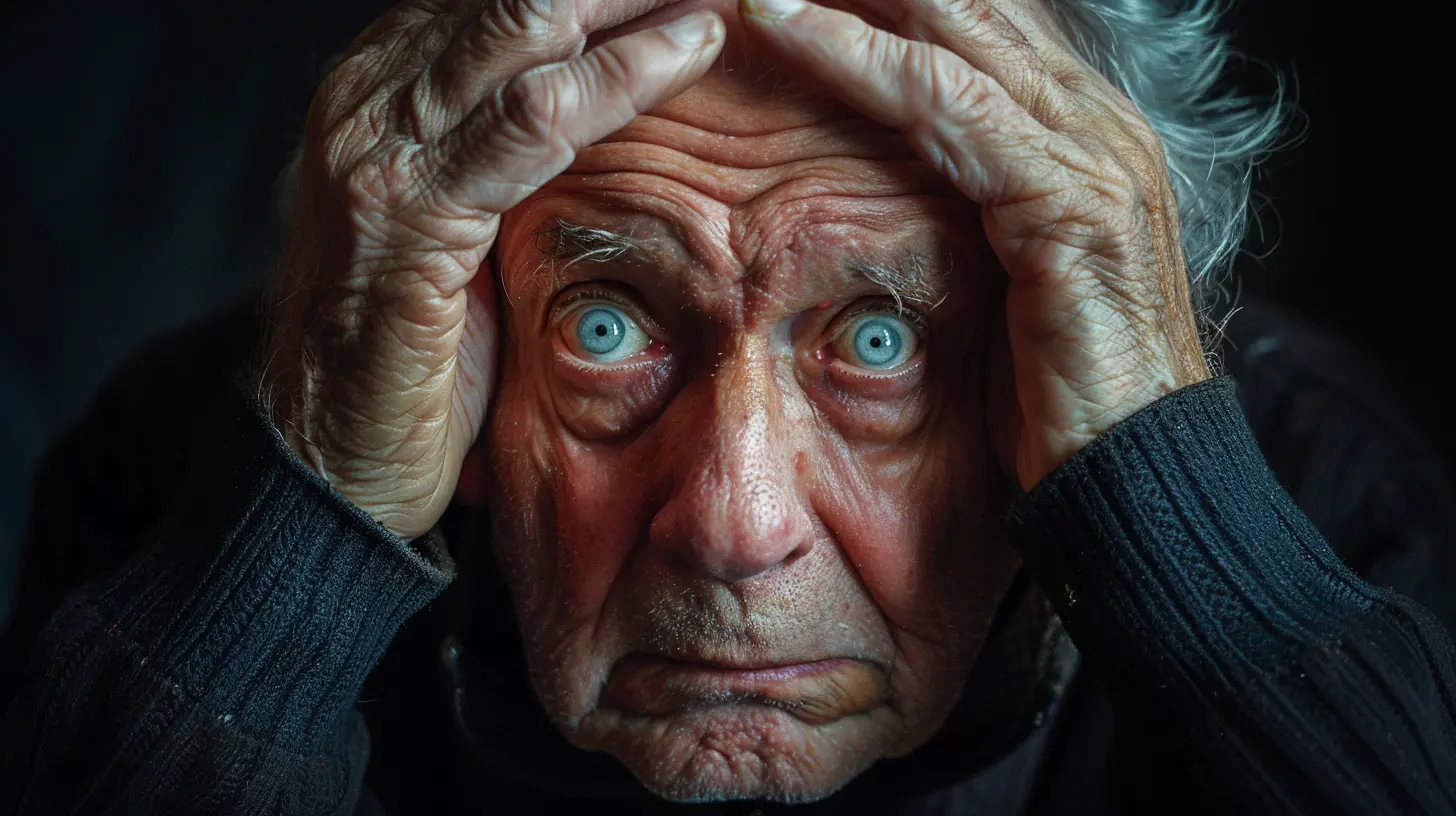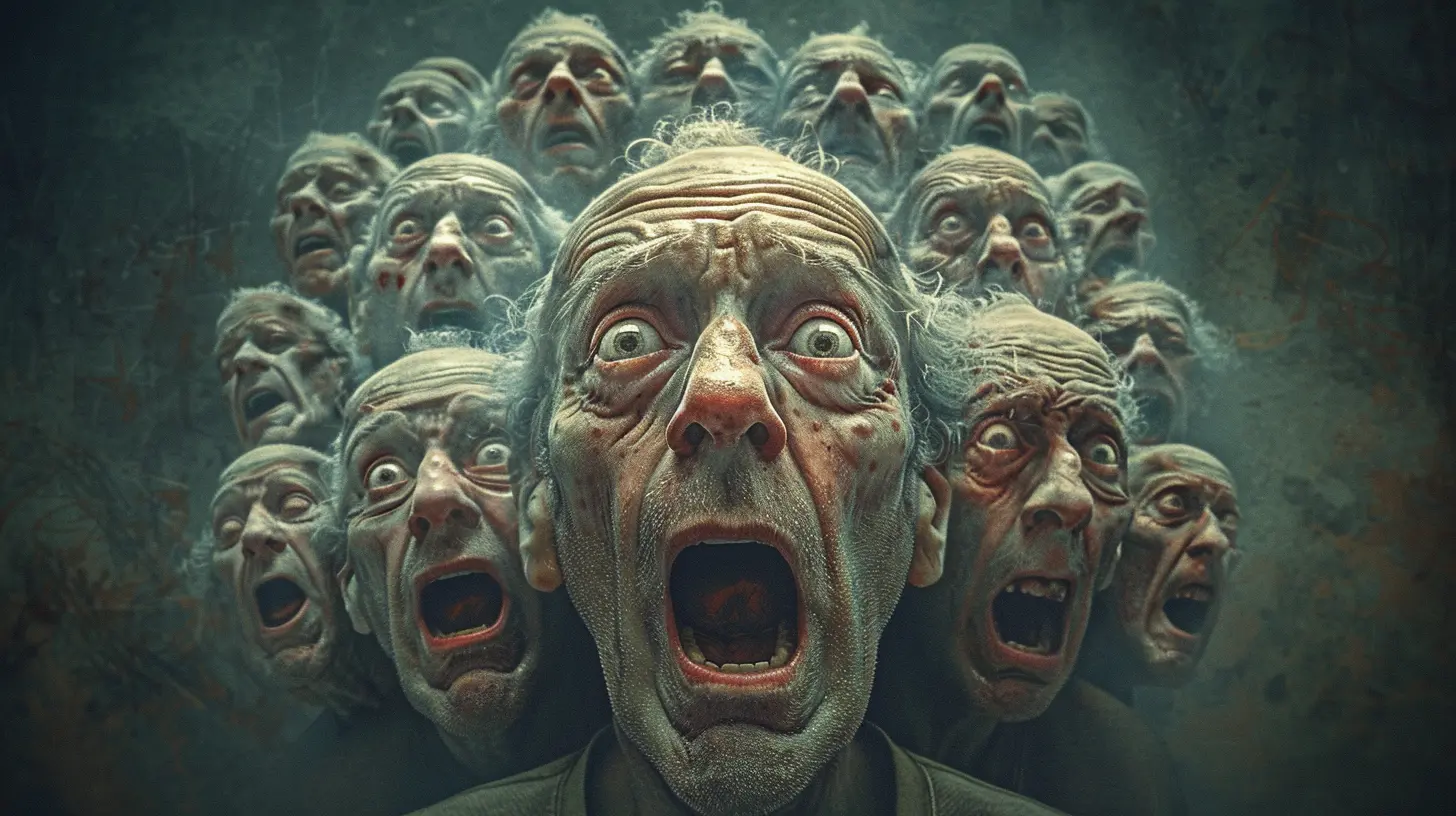Phobias and Aging: Do Fears Get Better or Worse Over Time?
4 September 2025
Phobias—those intense, irrational fears that send shivers down your spine—are a common part of life for many people. Whether it’s a fear of spiders, heights, or social situations, these anxieties can grip us at any stage of life. But as we age, do these fears fade away, or do they tighten their hold?
It's a fascinating question, and the answer isn’t as simple as you might think. Some fears appear to diminish with time, while others become worse, sometimes morphing into new anxieties altogether. So, let’s dive deep into the connection between aging and phobias and see whether time truly heals—or exacerbates—our deepest fears.

Understanding Phobias: What Causes Them?
Before we tackle the aging aspect, let’s break down what phobias actually are. Unlike general fears, phobias are excessive, often irrational reactions to specific things or situations. They stem from a mix of genetics, life experiences, and brain chemistry.For example, a traumatic childhood event—say, a terrifying experience with a dog—could evolve into a lifelong phobia of dogs. On the flip side, some phobias seem to emerge out of nowhere, possibly rooted in our brain’s fight-or-flight response gone haywire.
Categories of Phobias
Phobias come in many forms, but they generally fall into three main categories:- Specific Phobias – Intense fear of particular objects or situations (e.g., spiders, heights, or flying).
- Social Phobia (Social Anxiety Disorder) – Fear of social interactions or being judged.
- Agoraphobia – Fear of situations where escaping might be difficult, often leading to avoidance of public spaces.
With this foundation in mind, let’s examine how these fears evolve over time.

Do Phobias Get Better With Age?
The simple answer? It depends. For some individuals, aging brings relief from fears, while for others, it intensifies them. Let’s explore why.The Positive Effect of Aging on Phobias
One school of thought suggests that as we age, we naturally become less reactive to fear-inducing situations. Think about it: with decades of life experience under your belt, you have likely faced (and survived) many of your fears head-on.Here’s how aging can improve phobias:
- Exposure and Habituation – Over time, repeated exposure to a feared object or situation can diminish the fear response.
- Changing Priorities – As people age, they often focus more on meaningful life experiences rather than being held hostage by irrational fears.
- Decreased Stress Response – Studies suggest older adults have a less intense physiological response to fear compared to younger individuals.
When Phobias Get Worse With Age
Unfortunately, not all fears fade into the background. Some phobias actually grow stronger as people age. Why? There are a few key factors at play:- Cognitive Decline and Anxiety – As we get older, cognitive changes, like memory loss or reduced problem-solving skills, can amplify anxiety. If you already had a phobia, this added stress can make it worse.
- Health Concerns and Mortality Awareness – Aging brings new challenges, like declining health or loss of independence, which can feed into pre-existing fears or create new ones. A once-manageable fear of heights, for example, might worsen if you feel less physically capable of handling risky situations.
- Limited Exposure – Avoidance is a big factor in phobias. If an elderly person stays at home more due to mobility issues, they may develop agoraphobia or intensify existing fears due to lack of exposure.

The Role of Experience and Coping Strategies
One of the biggest advantages older adults have over their younger counterparts is life experience. Over the years, many people develop coping mechanisms that help them handle their fears better than they did in their youth. Some common ways people adapt include:- Rationalization – With age often comes wisdom. Many older adults are better at recognizing irrational fears and talking themselves out of panic.
- Avoidance (For Better or Worse) – While avoiding fears can reinforce them, sometimes elderly individuals naturally shift priorities, avoiding triggers without significant distress.
- Stronger Support Systems – Long-term relationships, family members, or even therapists help older individuals manage their phobias more effectively.
On the other hand, isolation or lack of emotional support can intensify fears, especially in later years.

How Aging Affects Different Types of Phobias
Not all phobias age the same way. Some become irrelevant, while others take center stage. Here’s a breakdown of how different phobias typically evolve with time:1. Childhood Phobias Often Vanish
Many kids have intense but fleeting fears—monsters under the bed, strangers, or darkness. By adulthood, most outgrow these fears naturally.2. Social Phobia Can Improve or Worsen
For some, age brings confidence, making social anxiety less of an issue. But for others, retirement and reduced social interaction can make social phobia worse.3. Fear of Death and Health Becomes More Prominent
Younger people may not think much about health issues, but for older adults, the fear of illness or death can become overwhelming. Hypochondria or health anxiety can escalate significantly.4. Phobias Related to Mobility and Independence Increase
Elderly individuals may develop fears of falling, driving, or being left alone, particularly if they have experienced a traumatic event like a bad fall.Can Phobias Be Treated at Any Age?
Good news—yes! No matter how old you are, it’s never too late to tackle your fears. Modern psychology offers several effective treatments:- Cognitive-Behavioral Therapy (CBT) – Helps reframe negative thoughts associated with phobias.
- Exposure Therapy – Gradually introducing the feared object or situation to desensitize the individual.
- Mindfulness and Relaxation Techniques – Meditation, deep breathing, and yoga can reduce anxiety responses.
- Medication – In severe cases, anti-anxiety medications or beta-blockers can help manage symptoms.
If phobias are interfering with daily life, seeking professional help is always a step in the right direction—no matter your age.
Final Thoughts: What’s the Verdict?
So, do phobias get better or worse with age? There’s no one-size-fits-all answer. Some people find relief as they gain wisdom and perspective, while others struggle with heightened anxieties due to life changes, health concerns, or cognitive shifts.What’s important to remember is that fear is a deeply personal, evolving experience. Whether you're 25 or 85, your brain is capable of adapting, learning, and overcoming even the deepest of phobias. With the right mindset and coping mechanisms, fear doesn’t have to control your life—at any age.
all images in this post were generated using AI tools
Category:
PhobiasAuthor:

Matilda Whitley
Discussion
rate this article
1 comments
Talia Alexander
Embrace change; growth conquers all fears!
September 4, 2025 at 3:08 AM

Matilda Whitley
Thank you! Embracing change is indeed crucial for overcoming fears, as personal growth often leads to greater resilience and understanding over time.


